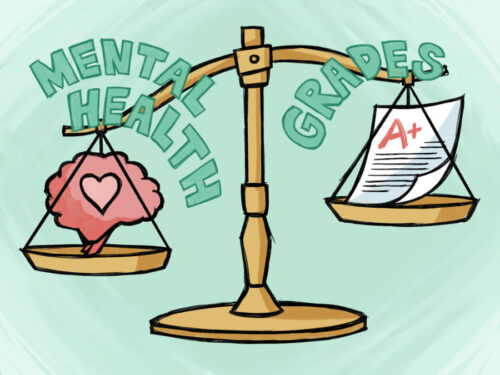
Mental health is a growing concern among students. While education is a priority for them, sometimes the work required to gain that education can place a strain on their mental health, which may already be strained for other reasons. Balancing your academics with your mental health is essential, not just for your health, but also for your education. Of course, this can be easier said than done. Here are three tips for establishing and maintaining this balance.
1. Schedule your time effectively
Most students understand the stress of an upcoming deadline, and the feeling that you will not be able to complete an assignment on time. Effective time management skills can help with this significantly. Some students may think of this as scheduling time for specific tasks, so as to help fight procrastination. While that is an important and useful part of time management there is a lot more to it. Scheduling tasks effectively may allow you to schedule certain tasks during times when you are less likely to be facing distractions, or find ways to split tasks into smaller chunks that can be completed at different times, so that you can make effective use of small periods of downtime throughout the day. By dedicating specific thought to how you can schedule your various tasks throughout the day, you may find that you can complete more work. Or even better, you may find that you’re left with more personal time, to relax, have fun, and take care of yourself.
For example, lessons at Ontario Virtual School can be paused and rewatched, so students are able to view just part of a lesson, and view those parts at whatever times are convenient for them. Students may have a busy day in which they wouldn’t normally be able to attend school, but perhaps there is travel time, and if the you are merely a passenger, that can be a perfect time to catch up on a lesson. Or maybe you have a number of activities throughout the day, but have breaks between them. Even a break of 15 minutes could allow you enough time to view at least part of a lesson, and if there is another break later, you can continue then. As well as watching lessons in parts, assignments can be broken up into smaller chunks, and while the full assignment could take hours, one of those chunks could take just a few minutes. It might be easier to find time to complete one small piece at a time, and being able to pace yourself will help reduce the stress that comes with being overwhelmed by a large assignment.

2. Take Time for Yourself
Taking care of yourself can be just as important as your other responsibilities. While it’s always important to keep on top of your priorities, and not allow yourself to procrastinate, we all need some time to relax and recharge. Even when talking about this in basic forms, like sleep, many students do not get enough, and this can significantly impact both their academic performance, and their mental health in other areas of life. But even beyond that, experiencing prolonged periods of stress, and lack of waking relaxation, can cause similar problems. Relaxation can mean different things for different people, but it’s important to take time out for things you enjoy. While doing this too much can contribute to the stress of unfulfilled responsibilities, you shouldn’t forget that you also have a responsibility to take care of yourself. Maybe this involves specifically scheduling time for yourself, or allowing yourself to change your schedule when you really feel the need. What effective self-care involves can differ from person to person, but whatever it is for you, it is important to allow yourself time to do it.
3. Reach Out for Help
Everyone needs help from time to time, but sometimes asking for help can be difficult. It can make us feel insecure or ashamed, but it could also be that we just don’t know where to turn, or feel like there is nowhere we can go for help. It’s important to remember that there are places you can go and people who will try to help.
When talking about academics, it’s important to remember that you can ask your teachers for additional help with schoolwork, or extensions on assignments, which may help boost your academic performance significantly, and that can in turn reduce the your stress and benefit your mental health. As well, many students do not take advantage of their school’s guidance department, or may not even be aware their school has one, especially in cases of online schools. Contacting your guidance department for help with things like putting your courses on hold or finding ways to reduce your academic stress, can help alleviate some of your stress and allow you to focus on your mental health.
There are also many other services, both online and in many localities, specifically to help with mental health concerns. Some online resources to consider are Kids Help Phone or Wellness Together Canada, as well as OVS’s free Supporting Mental Health course. Sometimes problems feel insurmountable, but it’s important to remember that there are places you can go for help.
Balancing your mental health when your education can be hard at times, but there are always things that you can do to help keep the balance and achieve success.
